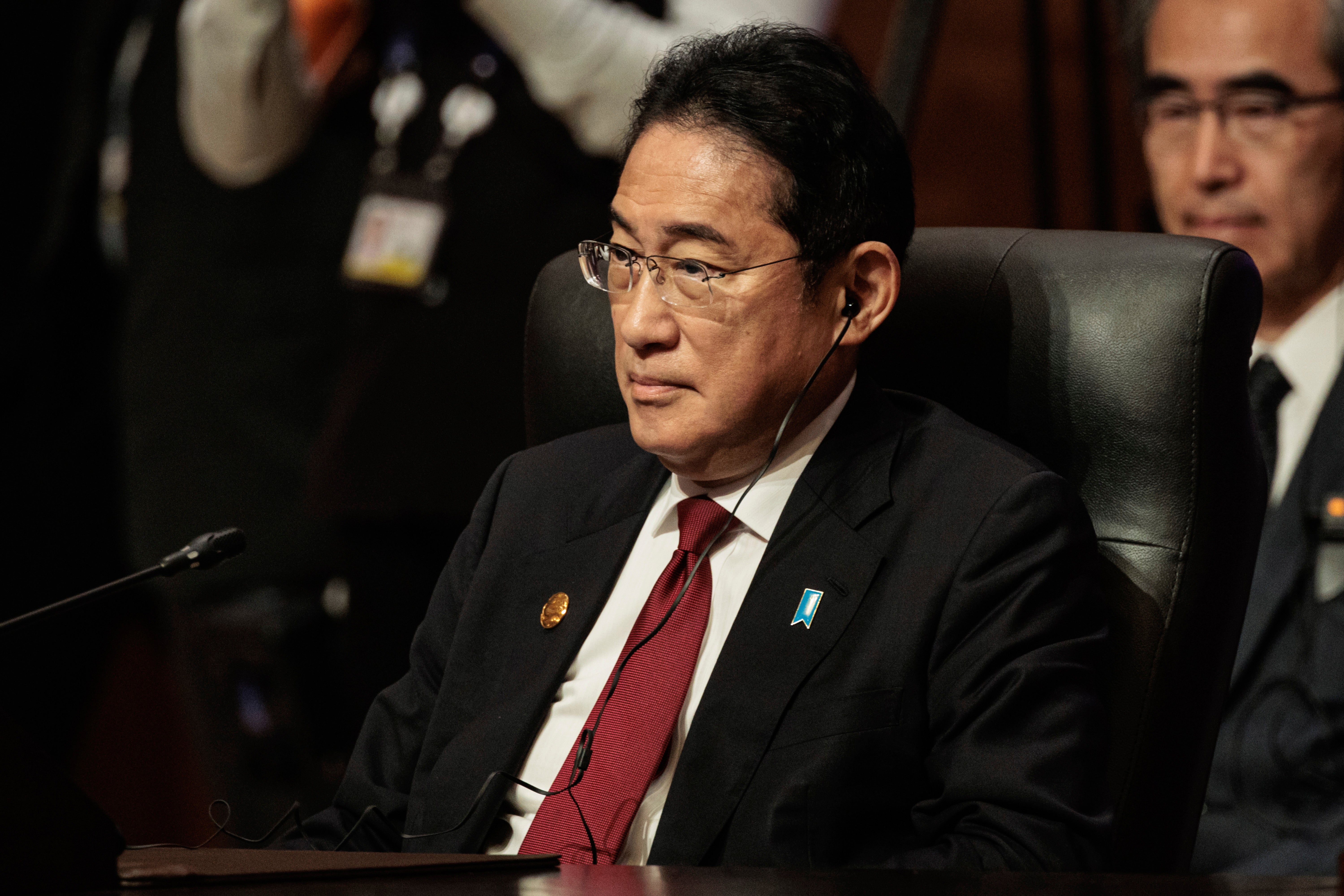Japan's Kishida says China seafood ban contrasts with wide support for Fukushima water release
Japan’s prime minister says China’s blanket ban on Japanese seafood in reaction to the release of treated radioactive water from a tsunami-ravaged nuclear power plant contrasts starkly with broad understanding shown by many other members of the international community

Your support helps us to tell the story
From reproductive rights to climate change to Big Tech, The Independent is on the ground when the story is developing. Whether it's investigating the financials of Elon Musk's pro-Trump PAC or producing our latest documentary, 'The A Word', which shines a light on the American women fighting for reproductive rights, we know how important it is to parse out the facts from the messaging.
At such a critical moment in US history, we need reporters on the ground. Your donation allows us to keep sending journalists to speak to both sides of the story.
The Independent is trusted by Americans across the entire political spectrum. And unlike many other quality news outlets, we choose not to lock Americans out of our reporting and analysis with paywalls. We believe quality journalism should be available to everyone, paid for by those who can afford it.
Your support makes all the difference.Japan’s prime minister said that China’s blanket ban on Japanese seafood in reaction to the release of treated radioactive water from a tsunami-ravaged nuclear power plant contrasts starkly with broad understanding shown by many other members of the international community.
The Fukushima Daiichi nuclear power plant on Japan’s northeastern coast started releasing treated and diluted radioactive wastewater in late August into the Pacific Ocean. The release has been opposed by the Japanese fishing community, which is worried about the reputation of the fish it catches. China immediately banned all Japanese seafood.
Japanese Prime Minister Fumio Kishida told reporters Wednesday in Jakarta, Indonesia, after a session attended by leaders of the Association of Southeast Asian Nations, as well as South Korea and China, that the treated water release is conducted under international safety standards and with the help of the International Atomic Energy Agency.
He said Japan has broadly gained understanding from the international community, and that in sharp contrast, China's blanket ban on Japanese seafood “stuck out.”
The Fukushima Daiichi nuclear power plant suffered major damage from a magnitude 9.0 earthquake and tsunami that hit Japan on March 11, 2011.
Kishida said he approached Chinese Premier Li Qiang during a break and explained to him Japan's effort in the treated water discharge. It was the first in-person, high-level contact between the two countries since the discharge began Aug. 24.
Kishida said he reiterated Japan’s scientific handling of the Fukushima Daiichi treated water release, stressing the importance of a scientific approach and release of accurate information.
Kishida declined to comment on Li's response.
Chinese authorities, as they imposed the seafood ban, said they would “dynamically adjust relevant regulatory measures as appropriate to prevent the risks of nuclear-contaminated water discharge to the health and food safety of our country.”
China is the largest destination for Japanese seafood exports, even though that is a small part of overall trade, and Japanese exporters were hit hard by the ban.
Hours later in Japan, U.S. House Speaker Kevin McCarthy, accompanied by a group of bipartisan lawmakers, was at U.S. Embassy in Tokyo, where Ambassador Rahm Emanuel was serving vegetables and fruits from Fukushima and fish caught off the coast of neighboring Miyagi prefecture, to support Japan.
“I just view it as another way of the communist party of China putting the falsity out there, trying to divide, and it’s just an unfair position that they have and a false position that they have from the rest of the world’s stance,” said McCarthy, criticizing China’s ban on Japanese seafood.
McCarthy said he set up a bipartisan committee to study how China influences industries around the world when he became House Speaker, and has seen China try to dominate and control a number of industries, while “dumping falsities on others and watching the same situation happen here.”
“So what you have to do is wake up to that day, stand together, stand with your friend, do it based upon science as well, something that China does not do,” McCarthy said, noting China's lack of transparency during the COVID pandemic.
The U.S. Embassy is also working with Japan's government to find new export destinations in the United States, as well as other countries for scallop processing that Japanese exporters used to conduct in China.
Japanese officials have said they plan to cultivate new export destinations in Taiwan, the United States, Europe, the Middle East and some southeast Asian countries, such as Malaysia and Singapore.
Kishida's Cabinet on Tuesday approved a 20.7 billion yen ($141 million) emergency fund to help exporters hit by China's ban on Japanese seafood. The money will be used to find new markets for Japanese seafood to replace China and fund government purchases of seafood for temporary freezing and storage. The government will also seek to expand domestic seafood consumption.
The new fund is in addition to the 80 billion yen ($547 million) that the government previously allocated to support fisheries and seafood processing and combat reputational damage on Japanese products.